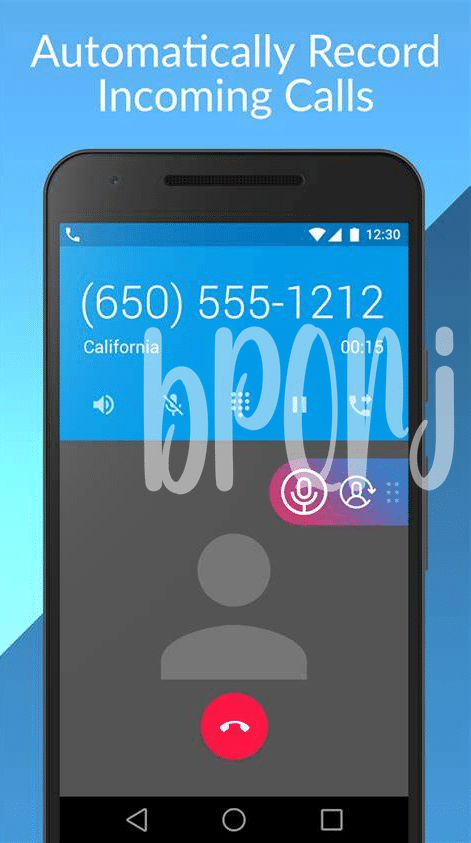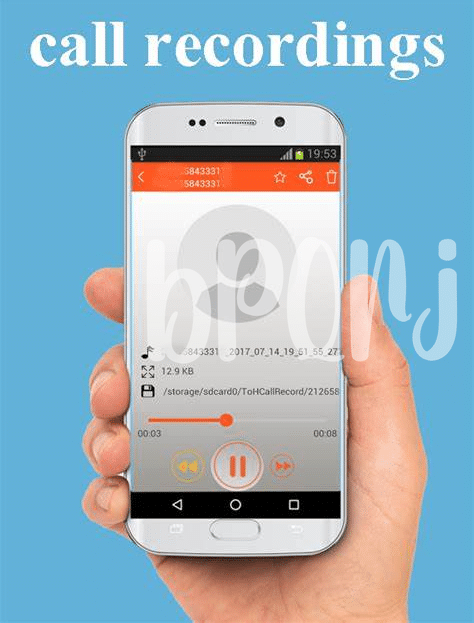- 📱 the Basics of Call Recording on Android
- 🚦 Understanding Consent Laws and Regulations
- 🔒 Privacy Concerns and Ethical Considerations
- 🛠️ How to Properly Record Calls: Tools & Tips
- 💼 Legal Repercussions of Unlawful Recording
- 🎧 Alternatives to Recording: Note-taking & Summarizing Calls
Table of Contents
Toggle📱 the Basics of Call Recording on Android

Did you know that with just a tap on your Android phone, you can keep a recording of the important conversations you have? It’s like hitting a digital pause button, creating a perfect reminder for all the details you don’t want to slip through your memory’s grasp. However, before you dive headfirst into this convenient feature, let’s clear the mist around it. Truly understanding the ins and outs of call recording will keep you from being that unwitting bagholder of legal troubles.
| Feature | Description |
|---|---|
| Built-in Recorder | Many Android devices come with pre-installed apps that can record calls with ease. |
| Third-party Apps | Various applications available on the Play Store can facilitate call recording if your phone lacks a built-in feature. |
| Cloud Storage | Saved recordings can be uploaded to cloud services for safekeeping and easy access. |
| Quality Settings | Options to adjust the audio quality of the recording to manage file size and clarity. |
Remember, the line between being savvy and skirting legalities here can be as fine as a hair. No one wants to FOMO into this feature only to find out they’ve stepped over boundaries they didn’t even see. Next time you press record, make sure you’re as informed about the dos and don’ts as you are about the latest cryptojacking headlines. After all, staying on the right side of the law is definitely a trend worth setting.
🚦 Understanding Consent Laws and Regulations
When you’re thinking about tapping the record button on your Android device to save a conversation, the one thing you don’t want is to end up holding the bag with a hefty fine or worse. The rules around recording calls are a bit like the Wild West; in some places, you’re good with just your okay, but in others, you better not hit record unless you’ve got everyone on board. It’s not like crypto where you can ride the highs and lows with diamond hands – with recording calls, it’s all about nailing down those permissions. Before you even think about recording, you’ve got to DYOR. That means digging into local laws that can vary big time depending on where you are. And just like in crypto, FOMO isn’t your friend here. Rushing to record without understanding the legal fine print is a fast track to getting rekt, legally speaking. So take a beat, make sure you’re not stepping on any digital toes, and if you find yourself craving a distraction from not being able to tape those calls, why not keep your thoughts straight by jotting them down in the best free journal app android?
🔒 Privacy Concerns and Ethical Considerations
When you press that little red record button on your Android phone, it might feel like you’re just keeping a memory or making sure you don’t miss a detail from an important conversation. But have you ever stopped and thought about the whispers of worry lurking in the digital shadows? You’re entering a realm where privacy isn’t just about keeping secrets; it’s about respecting the invisible boundaries we all expect others to recognize—even when they’re not taped on the floor. Imagine, here you are, all set to HODL onto every word of that call, but without the other person’s say-so, you might be inadvertently setting up a digital domino effect, where trust is the first casualty, tumbling right into a pool of ethical quicksand.
Sure, in the age of oversharing, some might shrug off these concerns with a casual “IYKYK,” but that’s missing the point. Every person’s voice, their spoken thoughts, are kind of like their own personal crypto wallet. It holds value that’s uniquely theirs and tapping into that without consent is like cryptojacking their vocal bits and bytes. Now, whether you’ve got diamond hands that can grip onto principles even when FOMO hits or paper hands that crumble at the prospect of not capturing every moment, it’s crucial to consider how recording a call could crack someone’s personal vault of privacy. The thing is, just as not everyone is destined to Moon in the world of digital assets, not all conversations are meant to be etched in digital stone.
🛠️ How to Properly Record Calls: Tools & Tips
When you’re about to record a call on your Android, think of it as holding a delicate crystal ball—handle with care, or you risk the trust of your convo partner turning to dust. Before hitting the record button, be as transparent as a glass house. Give a heads-up to the person on the other end, keeping things on the up and up. Now, you’re probably pondering over the best free app that won’t leave you feeling like you’ve got weak hands during a crypto dip. Well, look no further! You can check out this list of top-notch tools by visiting the best free journal app android.
Let’s moonwalk over from the ‘FYI’ to the ‘how-to’. After getting the green light from everyone involved, choose a trusty app that promises not to rug pull your data. You’ll have plenty of choices, so do a bit of recon—like any sharp crypto enthusiast avoiding FUD in their investments. Some apps will auto-record every call, while others let you pick and choose like a Bitcoin Maximalist selectively betting on the blockchain. And hey, if you’re dealing with international calls, remember to DYOR on local laws—those tides can turn quicker than the market after a whale decides to splash.
💼 Legal Repercussions of Unlawful Recording
When you press record during a phone call, you might think it’s no big deal, but if you’re not careful, you could end up in hot water. If someone finds out that you’ve recorded them without their go-ahead, you could be in for a rough ride. In many places, recording a chat without letting the other person know isn’t just frowned upon; it’s actually against the law. 🚨 Imagine you captured a call, thinking you’ve got big plans – like catching someone in a lie or keeping important information on file – only to find out you’ve just stepped into a legal mess. That’s like buying into the hype of a new cryptocurrency without doing your homework (DYOR) – a risky move that could leave you rekt.
Now if things go south—say, you’re slapped with a lawsuit or even face charges—there are a few things you’re likely to face. First comes the “Oh no” moment 🤯 when you realize this was more serious than a dropped call. Judges can dish out fines that’ll make your wallet feel lighter, or they might even order you to pay the other person for the trouble you’ve caused. In serious cases, there’s a chance you could be looking at jail time. Think it’s all scare tactics? Not quite – some have found themselves in deep water for sharing a conversation they thought was safe to record. It’s a reminder that having a castle in the sky, like building a flawless case or nailing a deal, might crumble if you’re ignoring the rules of the game.
| Potential Legal Repercussion | Consequence Details |
|---|---|
| Fines | Monetary penalties which can be substantial depending on jurisdiction. |
| Compensation to Affected Party | Costs paid to the individual who was recorded without consent. |
| Jail Time | Possible incarceration for severe violations of recording laws. |
| Legal Fees | Expense of defending against a lawsuit, on top of any damages awarded. |
🎧 Alternatives to Recording: Note-taking & Summarizing Calls
Sometimes, joining the latest tech trend blindly can feel a bit like aping into crypto – you might end up with more than you bargained for. If you’re wary of the legal tightrope around recording calls, jotting down notes or summing up the essentials after a call can be a safer route. Think of it as your crypto wallet’s recovery seed phrase – a critical backup that doesn’t risk your security. By keeping a written record or a succinct summary, you not only steer clear of potential legal mishaps but also sharpen your focus on what’s really important in the conversation. Plus, it’s always there to refer back to, without the fear of playing back something you shouldn’t. Just remember, even with these methods, the goal is to keep trust intact – a value even Bitcoin maximalists and paper hands alike can agree on.



